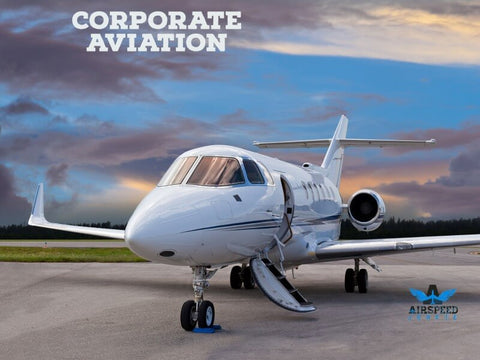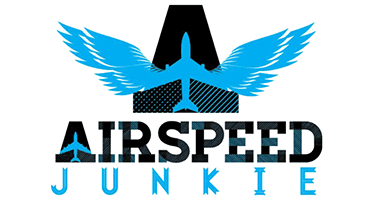“There are things that are hard to do”. Those are more satisfying when accomplished. “There are things that some deem impossible”. That makes you extraordinary. Easy things are for everyone else.
Aviation Dues in your Career
No doubt you have heard the statement “he paid his dues” at some point in your life. This is a very common phrase that actually has some meaning in the aviation industry in regards to your aviation career. It applies to most avenues of aviation and is so common that it begs us to bring up and clarify exactly what this could mean to you.
First off, here is what it is does not mean. It does not mean cash payment or any sort of monetary dues to an organization. It mostly refers to experience or what I like to call mileage.

No trip down the aviation timeline is free from errors or bumps in the road, there are times when we have to do something that we might not really like. (The military refers to this as embracing the suck). The path to the top has bumps and detours, the pilot that understands that from the beginning can navigate an easier way through it, but it is a right of passage. So to make it clear, we will take some individual examples and show how it applies.
CFI (flight instructor)
When you first get your rating, you have no experience, so your not an ideal candidate for a lot of students. Everyone wants to fly with the crusty old guy who has twenty thousand hours because he has experience. You also may lack something else depending on your aviation goal. Most flight instructors are just passing through, their goal is to build time and move on to the next job. Some are really not good teachers, oh sure, they can fly well, but they really are not effective teachers.
The key to this profession as an aviation career, is building a reputation as an effective teacher and to have zeal for your profession. Those are the instructors that people want to be around. Getting there or developing that reputation is the tricky part. You have to fly with almost anyone willing to hire you.
Where it would be more fun to do aircraft checkouts or teach advanced flying techniques like instrument training, you have to endure the work of countless touch and goes to build a good reputation. I once did 56 touch and goes in one day, that was 8 hours of logbook time. At the end of the day I was whipped and my back hurt, but that is part of it. The point is you have to put yourself out there at all the crazy hours to find and develop your sweet spot. This is an example of paying your dues.

Part 135 flying
This can be a step up from instructing. It can be various things from flying single engine charters or freight to bigger operations that do more things. Usually for low time pilots the entry level is around 1200 hours.
This kind of flying usually includes long days and lots of flying legs. Some companies have entry level single engine piston aircraft but also include more senior turboprop and turbojet aircraft. The lifestyle usually is less desirable on the entry level aircraft and you may find yourself working 14 hour duty days flying 10 legs with a break in the middle.
10 legs is a lot of takeoff and landings and for some it is merely a stepping stone to somewhere else. But if your goal is to stay and become senior, you can make some decent money in this aviation career. The point is, you have to stay a while and fly the junk routes before you move up. Hence this is known as another example of paying your dues.

Regional Airlines
For career pilots the regional airlines are one of the last stops before getting to the major airlines. Most do not plan on staying but a small percentage of pilots do stay. Sometimes they stay because the economy tanked and major airlines stopped hiring. Sometimes it could be that you just can’t get hired by a major airline for some reason or another. Some make the regionals their final destination due to the fact they can gain seniority faster because people are eager to move on.
Either way, when you start, you start at the bottom and the bottom usually means you are on reserve. On reserve means you basically wait for the scheduling department to call you and assign you a trip when something breaks or someone calls out sick. Most of the times, these are not premium trips, more like the red eye to buffalo three nights in a row. No one really wants to be on reserve, most get off. Why? Because it is not fun or desirable, it’s another example of paying your dues.

Corporate flying
There are some really good corporate gigs and it can be a great aviation career. Most of the higher paying jobs come from knowing someone who knows someone who said they would interview you. However I am not talking about those sweet premium type of jobs. I am referring to entry level corporate jobs that do not pay well and make you a slave to being on call and available.
The number one complaint of corporate pilots is the lack of days off, including holidays, since you are always in a sense on reserve. The smaller jets do not pay as much as the larger jets and you can’t just land the premium jobs unless you get some mileage in the smaller and less lucrative aircraft.
How long does it take, It all depends on which part of the country you are in and what the turn over rate is for pilots. Less corporate pilots leave for airline gigs, they usually only leave for a better corporate gig in a nicer plane. Waiting around for your turn is paying your dues.

Military aviation
The military has a slight advantage over civilian flying since they basically put you where they need you based on your performance in training. If you do well in class, you pick first, if you don’t, you pick last. However moving around the military is certainly an option. One caveat is that fighter guys tend to remain fighter pilots and the same goes for transport pilots. The dues part comes from moving around at the whim of the military. If they need you in Alaska and that is where your unit is being transferred to, then off you go.
After 8 or 9 years of this most pilots tend to get burned out either on moving around or the politics of working for the US Government. It is also important to know that as you get older, as a pilot in the military, the larger your chances of being put in a non flying position. Usually this is some sort of a command scenario. Most would rather stay flying. If the military is a stepping stone to the airlines then paying your dues is your whole military experience. If the goal is to make the military an aviation career then paying your dues is putting up with the lifestyle of moving around and eventually not being in the cockpit anymore.
Private aviation business
This is not really referring to a private gig, perhaps flying a family around or being someone’s personal pilot. While that is a good gig to have, it is somewhat rare to find. Rather this is more slanted for someone who starts their own business based on a unique market niche idea that involves aviation.
A good example I have used before would be similar to starting a flight school that you own or starting a company that gives rides or even your own part 135 operation. This may not sound like a typical aviation career but there are some unique opportunities out there that are begging to be started. Starting your own business is not for the faint of heart. As fun and passionate as it sounds you basically work harder than anyone because you are the owner.
For example I once knew of an individual who started an aviation website and then bought a plane because he was in the “aviation” business and he could write it off. Once he had the plane, he started using the plane to give rides and instruction to supplement the costs of the plane.
After a while he became well known and built a reputation as being a great guy to work with and eventually his business morphed from the original plan he started with to his present plan. All that time is hard, and takes time. That time to getting to the sweet spot is paying your dues. It has been said that most start up businesses usually take four or five years until they become profitable, that is paying your aviation dues.
Airline Flying
If this is your goal then almost all the flying you do before getting there is paying your dues. However the fun does not stop there. If you get into a major, like a regional airline, you start at the bottom. That means being on reserve and flying the less desirable routes on the junior airplane. It also means being subject to furlough if the economy tanks and the airline chooses to reduce their staffing levels.
Being optimistic is great but if you ask around, there is almost always someone you know who has been furloughed from an airline (twice for me). To be honest, it is not fun and that is putting it very mildly. Being junior, flying red eyes, being based where you don’t want to be based, eating airport food, sleeping in crash pads and being furloughed is paying your dues.
Does it happen to every pilot that makes it to the majors? Certainly not, but can it happen? You bet. Know what the odds are like before you go in, these things happen, usually when we think they will not. It is a great aviation career, you just need to know that all the facts, not just some of them.
Summary
Hopefully this has helped with being informed. It is not meant to scare you but to give you a well rounded expectation of what actually goes on in the aviation industry and to understand the concept of dues.







